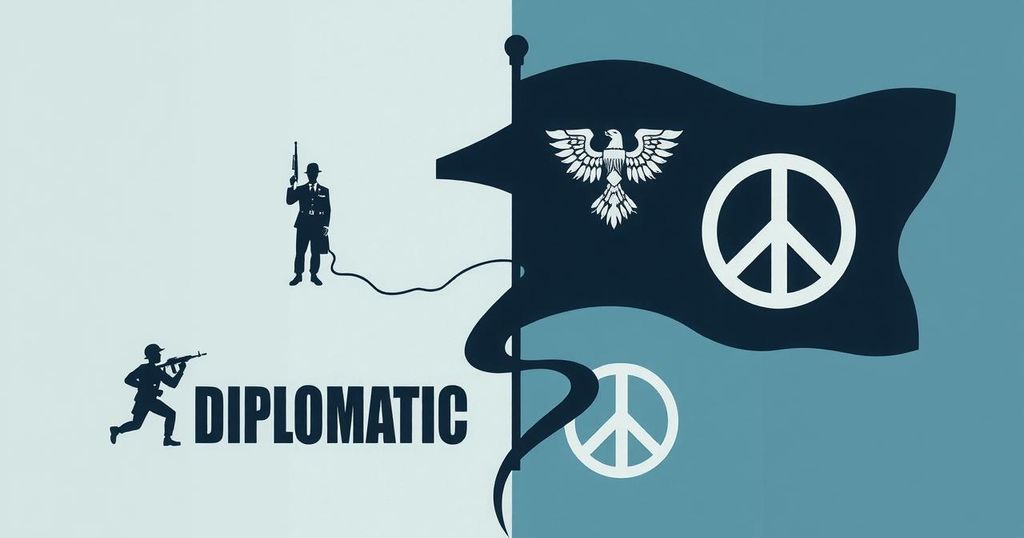Erdoğan’s Comments on Netanyahu Spark Tensions Between Turkey and Israel

Turkish President Erdoğan likened Israeli PM Netanyahu to Adolf Hitler, deepening tensions between Turkey and Israel. This provocative statement follows Israel’s military actions against Iran, marking a significant escalation in their complicated relationship. Analysts warn this rift threatens U.S. interests in the region, amid fears of growing conflict as military strikes continue.
In comments that have drawn sharp criticism, Turkish President Recep Tayyip Erdoğan recently likened Israeli Prime Minister Benjamin Netanyahu to Adolf Hitler, escalating tensions between Turkey and Israel. These remarks come amid rising hostilities over Israel’s military actions targeting Iran. This recent spat underscores the deepening rivalries between two traditional U.S. allies in a turbulent Middle East, a region already strained by conflicts surrounding Gaza and Syria.
It is noteworthy how Erdoğan characterized Netanyahu’s actions, stating, “Netanyahu has long surpassed the tyrant Hitler in the crime of genocide.” He expressed hope that Netanyahu would one day face international justice for what he perceives as multiple transgressions against humanity. This statement was shared during his address and broadcast on X, previously known as Twitter. Erdoğan condemned Israel’s military operations, asserting they embodied “inhumane aggression.”
In response to Erdoğan’s inflammatory remarks, Israeli Foreign Minister Gideon Sa’ar strongly criticized the Turkish leader. He accused him of inciting hostility not just against Israel, but also against Netanyahu himself. Sa’ar emphasized that Erdoğan, who has faced scrutiny for human rights violations within his own country, has no moral standing to preach to others about rights and freedoms. This rhetoric highlights the tenor of their tumultuous relationship, historically marked by periodic cooperation but frequent discord.
The differing perspectives on regional security have only heightened as both countries initiate military actions. After Israel responded to missile barrages from Iran with strikes of its own, the civilian toll has continued to rise on both sides. Israeli Defense Minister Israel Katz went as far as to dub Iran’s Supreme Leader Ayatollah Ali Khamenei as “the modern Hitler,” fueling a fire of escalated war talk, and cementing the hostile diplomatic atmosphere.
Yet, the implications of this fractious exchange stretch beyond mere rhetoric. Analysts are voicing concerns that the worsening relations might undermine U.S. interests in the Middle East, as both nations hold pivotal roles in regional dynamics. As the situation develops, the potential for a broader conflict becomes increasingly plausible, raising alarms among international observers.
In a statement from Turkey’s Foreign Ministry, officials defended Erdoğan’s comments, insisting that Netanyahu should be held accountable for accusations of genocide currently facing him in international courts. They assert that the Israeli leadership’s concerns only validate Erdoğan’s perspective regarding Israel’s military actions.
As this story continues to evolve, the geopolitical landscape remains precarious. The volatile relationship between Turkey and Israel poses substantial risks, not only for the two countries but also for stability in the Middle East and U.S. diplomatic interests.
The escalating feud between Turkey and Israel, sparked by Erdoğan’s offensive remarks comparing Netanyahu to Hitler, raises significant concerns for regional stability. Both nations have vested interests that could further complicate the U.S.’s strategic objectives in the Middle East. With military actions intensifying and rhetoric reaching alarming heights, the consequences of this discord could reverberate beyond their borders, potentially leading to a wider conflict.
Original Source: www.newsweek.com








